Last Updated on October 30, 2025 by teamobn
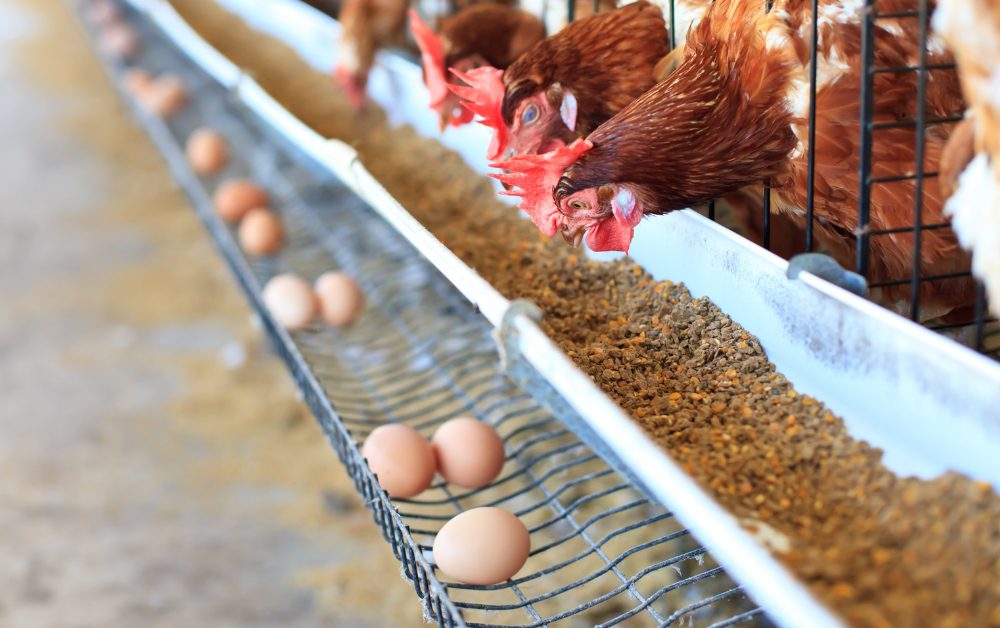
Are you considering joining the growing community of backyard chicken keepers? Embarking on the journey of raising chickens for fresh eggs is a gratifying and eco-friendly pastime that presents a multitude of advantages, ranging from a continuous provision of top-notch eggs to forging a more profound bond with your source of sustenance.
Within this article, you will be guided on an exploration of the captivating realm of raising chickens. Explore everything from selecting the right chicken breeds to providing optimal care and maintenance for your feathered friends.
Whether you’re a novice or an experienced poultry enthusiast, this article will equip you with the knowledge and skills to raise healthy, happy chickens and enjoy a bountiful supply of fresh eggs.
Contents
The Art of Raising Chickens
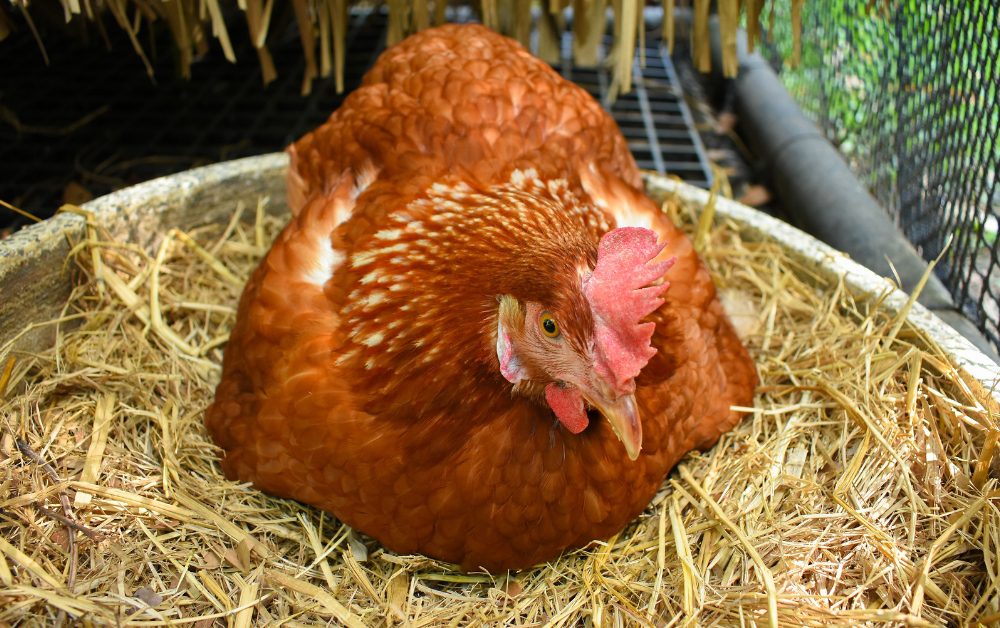
Chicken Breeds
When embarking on your chicken-raising journey, the first vital decision is selecting suitable chicken breeds for your specific needs and preferences.
1. Identifying Your Goals: Before acquiring and raising chickens, define your objectives. Are you primarily interested in egg production, meat, or dual-purpose birds that offer a balance of both? Knowing your goals will help determine the breed that best suits your needs.
2. Popular Egg-Laying Breeds: If a reliable supply of fresh eggs is your top priority, breeds like Rhode Island Reds, Leghorns, and Sussex are renowned for their prolific egg production. Choosing among them depends on your climate, space, and the specific traits you desire in your feathered companions.
Rhode Island Reds are celebrated for their resilience in a range of climates, making them a reliable choice for those living in diverse weather conditions. Leghorns, on the other hand, are known for their exceptional egg production and are often favored in warmer climates. Sussex chickens are sought after for their adaptability, making them an excellent choice for varying climates, and they come in a variety of attractive plumage colors.
Ultimately, your decision should align with your environmental factors, personal preferences, and the purpose of your chicken-keeping venture. Whether you aim for an abundance of eggs or a picturesque variety in your flock, these breeds offer a choice that suits your unique needs.
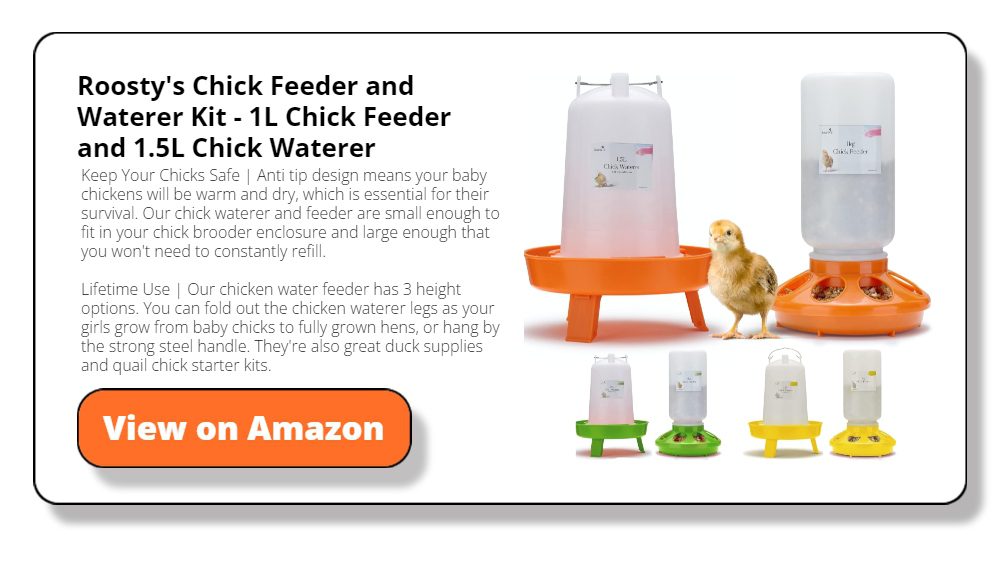
3. Heritage and Dual-Purpose Breeds: For those seeking a more sustainable approach, heritage and dual-purpose breeds like Plymouth Rocks and Orpingtons are excellent choices. They provide both eggs and meat, contributing to self-sufficiency.
Coop and Run Essentials
After selecting the perfect breeds, it’s time to set up a comfortable and safe living environment and start raising chickens.
1. The Coop: Building or buying a well-ventilated coop is essential to protect your chickens from the elements and hazards. Ensure adequate space per bird, with roosts for resting.
2. The Run: An outdoor run allows chickens to forage, exercise, and access fresh air. Construct it with sturdy fencing. Adding a covered area provides shelter during inclement weather.
3. Nesting Boxes: Provide clean and cozy nesting boxes filled with straw or wood shavings. This is where your hens will lay their eggs. Ensure easy access to egg collection.
Proper Nutrition
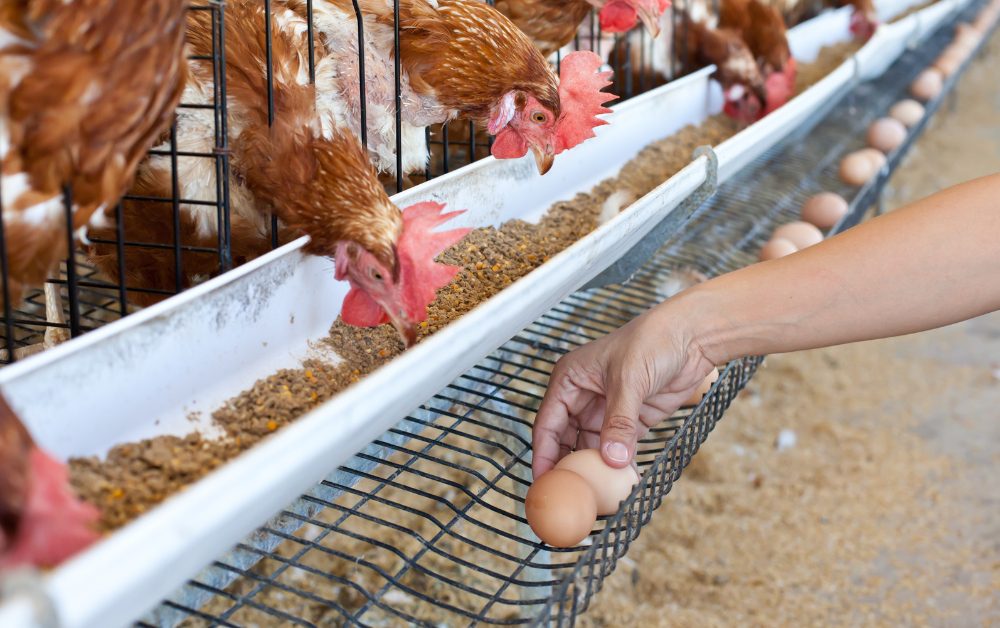
When you’re raising chickens to obtain fresh eggs, it’s important to ensure they receive a well-rounded diet to optimize both egg production and their overall well-being.
1. Basic Diet Components: A high-quality commercial chicken feed forms the foundation of your chickens’ diet. It should contain essential nutrients like protein, vitamins, and minerals.
2. Supplementary Treats: While commercial feed is essential, supplementing their diet with kitchen scraps, fruits, vegetables, and occasional treats like mealworms or seeds keeps your chickens entertained and promotes overall health.
3. Water Supply: Access to clean and fresh water is non-negotiable. Chickens can consume significant amounts, especially during hot weather. Securing an uninterrupted provision of uncontaminated water for your poultry surpasses mere hydration requirements; it assumes a pivotal function in preserving their holistic welfare, bolstering egg production, and upholding their overall prosperity.
Make sure your feathered friends always have the water hook-up, rain or shine, winter or summer, because hydration is the ultimate key to chicken bliss!
Health and Well-being
Regular health checks and a clean living environment are key to maintaining healthy chickens.
1. Health Monitoring: Watch for signs of common ailments, including respiratory issues, parasites, and reproductive problems. Early detection is vital for successful treatment.
- Respiratory Issues: Keep an eye out for chickens with nasal discharge, coughing, or sneezing. These signs may indicate respiratory infections, which can spread quickly within the flock if left unchecked. Isolation of affected birds and prompt treatment with antibiotics can help control these issues.
- Parasitic Infestations: External parasites like mites and lice can cause feather loss, discomfort, and potential health issues. Regularly inspect your chickens and their living quarters. If an infestation is detected, treat the affected birds and thoroughly clean the coop.
- Reproductive Problems: Reproductive issues such as egg binding, where an egg gets stuck in the hen’s reproductive tract, can be life-threatening. If you notice a hen straining without successfully laying an egg, seek immediate veterinary assistance. Proper nutrition can also help prevent egg-laying problems.

2. Vaccination: Taking into account your geographical area and the prevalence of specific diseases, contemplate the option of vaccination to safeguard your flock against prevalent poultry ailments such as Marek’s disease and infectious bronchitis. For example, Marek’s disease is a highly transmissible affliction that may result in paralysis and the formation of tumors. Utilizing vaccinations can offer robust defense against this debilitating condition.
3. Parasite Control: When raising chickens, implement a regular deworming schedule and inspect for external parasites like mites and lice. Maintaining good coop hygiene is essential in preventing infestations.
Internal parasites, such as worms, can negatively affect your chickens’ health and egg production. Implement a routine deworming schedule and consult with a poultry veterinarian to ensure the most effective treatment. Maintaining cleanliness in the coop and run areas can significantly reduce the risk of parasite infestations.
Egg Collection and Storage
Once your hens start laying eggs, it’s time to establish a system for collection and storage.
1. Egg Collection: Gather eggs daily to ensure freshness. Early morning and late afternoon are typical egg-laying times, so plan your collection accordingly. Store eggs in a cool and dry location. Ideally, room temperature is suitable, but in warmer climates or during hot weather, refrigeration may be necessary to prevent spoilage. Storing eggs at a consistent temperature helps maintain their quality.
2. Egg Cleaning: While it’s best to collect clean eggs, occasionally, you may find soiled ones. In such cases, gently wipe them with a damp cloth to remove dirt or debris. Avoid using soap or harsh chemicals as they can penetrate the porous eggshell. If you must wash an egg, use water warmer than the egg’s temperature to prevent any potential bacteria from being drawn inside the shell.
3. Egg Storage: Eggs can be stored for several weeks in a refrigerator. Label them with the date of collection to use the oldest eggs first. This helps you keep track of their age and ensures that you consume the eggs before they become too old.
Common Issues
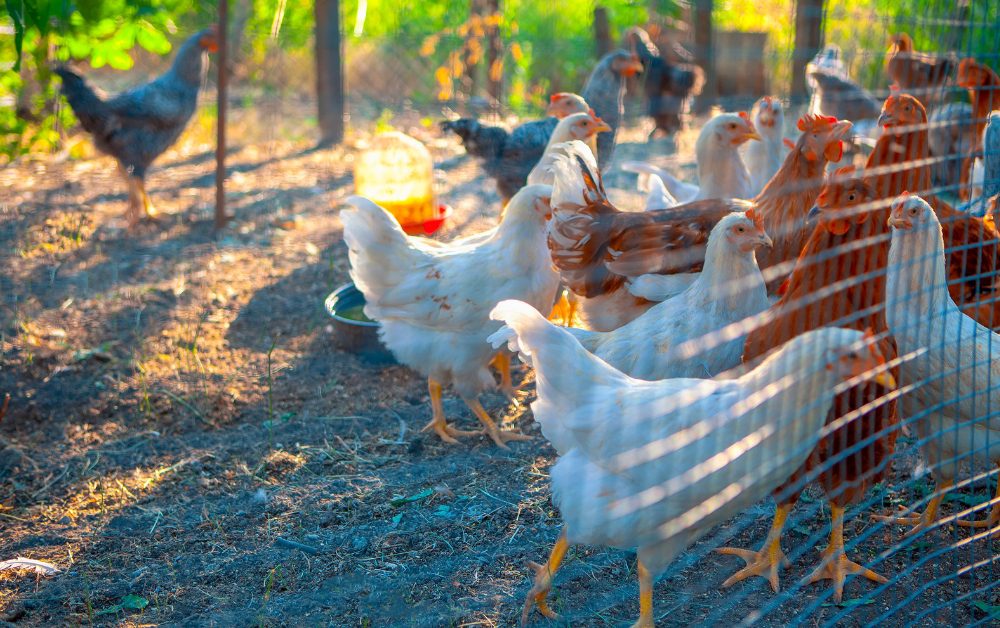
Sometimes, despite your best efforts while raising chickens, challenges may arise. It’s important to be prepared to address common issues.
1. Eggshell Quality: Inconsistent eggshell quality may occur. To improve it, ensure your chickens have access to sufficient calcium and maintain a low-stress environment.
2. Decline in Egg Production: Factors like age, moulting, and environmental stressors can lead to a decrease in egg production. Understanding these factors can help you address them appropriately.
The Wrap Up
By following these tips and tricks for raising chickens, you’re well on your way to enjoying a bountiful supply of fresh eggs and a rewarding relationship with your flock. Keep in mind that chicken-raising encompasses more than just egg production; it’s a way to nurture a connection with the natural world and play a part in sustainable living.
So, start your chicken-raising adventure today and embrace the joys of tending to these feathered companions.

Frequently Asked Questions
1. What’s the ideal environment for raising chickens for fresh eggs?
When raising chickens, provide a clean, dry, and secure coop with good ventilation, nesting boxes, and access to a safe outdoor area for exercise.
2. What do chickens eat and how to feed them?
Chickens need a balanced diet of layer feed, fresh water, and occasional treats like vegetables. When raising chickens for quality eggs, ensure they have access to food and clean water at all times.
3. How to care for chickens’ health?
When raising chickens, ensure you have time for inspections and proper care. Check your chickens for signs of illness, keep their living area clean, and follow vaccination and deworming schedules.






